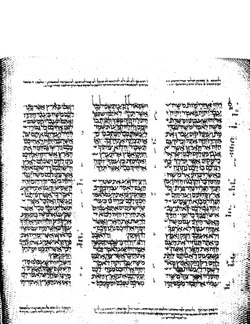The command to allot the Land (13:1–7)
After the completion of the conquest narrative, this passage starts the major section concerning the allocation of territory to the tribes (Joshua 13–21). The command to Joshua (verse 1) recalls other challenges to Israel in the book, with promise and warning at the same time (23:16; 24). It is followed by the outline of the land not yet conquered, covering three areas:
- the Philistine lands from the border with Egypt in the south to the five Philistine cities in the coastal plain north of it (verse 3);
- the Phoenician coast (verse 4), and
- the mountains of Lebanon (verses 5–6).
Now Joshua's task is to divide the land in Cisjordan (v. 7), as the Transjordanian land have already been allotted.
Verses 2–3
- 2This is the land that yet remains: all the regions of the Philistines, and all those of the Geshurites 3(from the Shihor, which is east of Egypt, northward to the boundary of Ekron, it is counted as Canaanite; there are five rulers of the Philistines, those of Gaza, Ashdod, Ashkelon, Gath, and Ekron), and those of the Avvim, [13]
- "Philistines": This is the first report in the book of this group of people in the land of Canaan, and Israel unconditionally promised to expel them from the Shephelah. Joshua never fought directly with the Philistines, because during the period of his conquest the area of Philistine cities (Ekron, Isdud, Ascalon, Gaza and Gath) might still largely be occupied by the "Anakim". The first clash of Israelites with the Philistines occurred briefly in the time of Shamgar (Judges 3:31). The Philistines definitely established as a major force in Canaan during the time of Samson (Judges 16:21–23) and later.
The settling of Transjordan (13:8–33)
The allotment of the Transjordan (land east of Jordan River) prefaces the section about the distribution of the Cisjordan (land west of the Jordan), with more abbreviated lists of cities than the parallel in Numbers 32:34–38, but including other materials (e.g. Numbers 31:8 for verses 21–22; Deuteronomy 18:1 for verses 14, 33). Moses led the conquest in Transjordan (verses 12, 21), so he could 'give' the land as 'inheritance' (verses 8, 14-15, 24, 29, 33), and this continues to chapter 14 (verses 3-4, 9, 12), until finally Joshua is the one who 'gives for an inheritance' (14:13). This Transjordan narrative is therefore to affirm the unity of Moses' and Joshua's work, and demonstrates the unity of all tribes of Israel. The division of the large tribe of Joseph into two, Ephraim and Manasseh (14:3–4), explains why the tribe of Levi did not receive land of its own (verse 14, 33; their compensation is elaborated in Joshua 21), so the twelvefold character of Israel is maintained. Although Moses and Joshua distribute the land, it will be an 'inheritance', as its ultimate giver is the God of Israel.
Verse 22
- Balaam also, the son of Beor, the one who practiced divination, was killed with the sword by the people of Israel among the rest of their slain. [16]
- "Balaam": was hired by Balak, king of Moab, to curse Israel, but he committed to the word of God (after receiving warnings) to bless the Israelites (Numbers 22–24), but he continued to practice divination and gave advice leading to Israel getting the curse in Baal-Peor (Numbers 31), so his killing is to recompense his part to the incident.
This page is based on this
Wikipedia article Text is available under the
CC BY-SA 4.0 license; additional terms may apply.
Images, videos and audio are available under their respective licenses.

